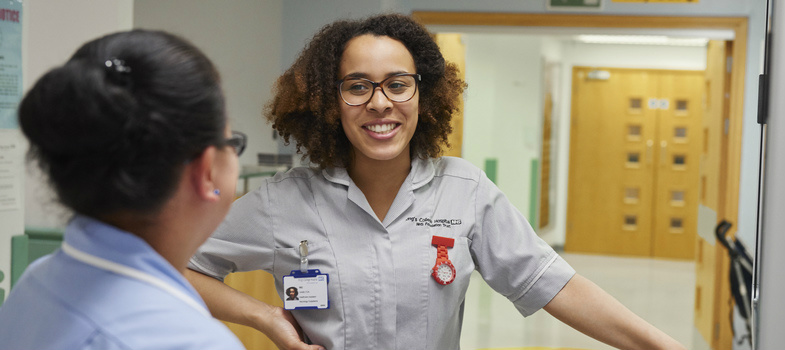3.5 Communication in Parkinson’s – case study
Case Study 3.1 Geoff and Pat
We have considered the communication problems that can be caused by Parkinson’s, as well as their impact and how to manage them. Now we will look at the real experiences of Geoff and Pat.
Geoff, who is 73 and was diagnosed with Parkinson’s in 2016, and his wife Pat, share their experience of communication difficulties before Geoff got help.
Geoff says:
I put almost everything I could no longer manage down to Parkinson’s and hence it needed no action on my part. I could not ‘help’ it and others should adapt to compensate.
Any criticism or request for change was rejected. If Pat could not hear me, it was her problem not mine. I had begun to avoid situations when I would need to speak, and I stopped answering the phone and zoned out of family social activities,for example chatting over meals and with friends, and reading to my grandson. I’d lost my confidence and willingness to engage with others.
I did not realise how my quiet voice and lack of responses in conversations was affecting my relationships,with family, friends and colleagues.
I felt bad about myself, anxious, negative and introverted. I didn’t smile or laugh as much as I used to. Life wasn’t fun any more.
Pat says:
Geoff’s voice had become much quieter and had less expression. He had stopped opening conversations and when asked a question would reply with very limited answers.
In the car he had stopped chatting to me. In the evenings he would sit, not communicating at all, or doze off to sleep. This did start to impact our previously busy social life. Friends reduced contact with us and invitations were not extended. I began to overcompensate and talk more and more as he became more silent.
Geoff recognised his voice had become quieter, but I think he had put this down to my own hearing loss. Despite my hearing aids, he assumed it was my imagination when I said I couldn’t hear him.
Family and friends all shared with Geoff that his voice had become too quiet for normal conversation.
Thinking quickly, formulating answers on the spot, and responding to random questions was something Geoff found difficult. I would speak for him or move conversations along by intervening.
The old Geoff had gone. There was no laughter in his voice, and he no longer made jokes.
Exercise 3.3
Please note down your answers to the following questions in your reflection log [Tip: hold Ctrl and click a link to open it in a new tab. (Hide tip)] :
- What communication and other Parkinson’s challenges are Geoff and Pat living with?
- What health and social care professionals may be able to help?
- What could you do to help?
Answer
- What issues and challenges are Geoff and Pat living with?
- denial
- side effects of medication
- anxiety
- frustration
- isolation
- loss of senses of humour
- loss of friends
- changes to Sheila’s lifestyle
- difficulties with communication – slow to get words out, flat facial expression, flat tone of voice, embarrassment at not being understood.
- What or who could have helped?
- speech and language therapist
- Parkinson’s nurse or GP to help with anxiety and review drugs
- signpost to Parkinson’s local group
- mental health professional (such as a counsellor or community psychiatric nurse).
- What could you have done to help?
- refer Geoff to a speech and language therapist
- recommend the LSVT LOUD speech treatment
- make sure medication is taken on time
- allow plenty of time for Geoff to answer questions
- ask only one question at a time
- reassure Geoff that it’s OK to take a while to answer
- don’t decide what Geoff wants, wait until he can tell you
- encourage Pat to not answer for Geoff or interrupt him
- encourage Pat to explain Geoff’s condition to their friends
- encourage Geoff and Pat to think about joining smaller social gatherings and possibly a Parkinson’s UK local group – depending on your job role you may need to highlight this as an option, because people may not know about Parkinson’s UK local groups.
Since receiving speech therapy, Geoff's voice has got louder and his confidence has returned. He says that "life is fun again."
You can read Geoff and Pat’s full story at https://www.parkinsons.org.uk/ information-and-support/ your-magazine/ stories/ our-experiences-lee-silverman-voice-treatment
3.4 Managing communication problems
